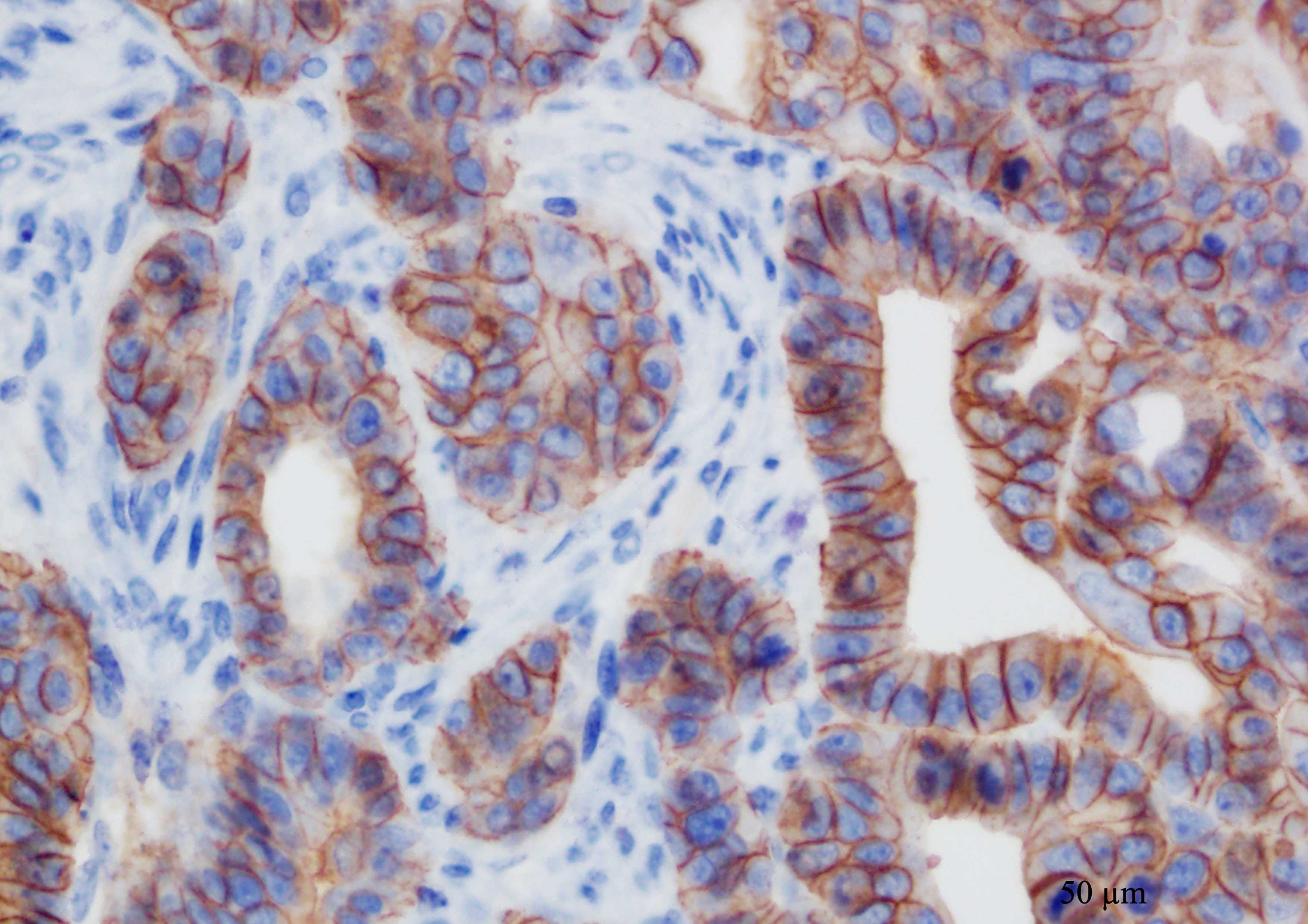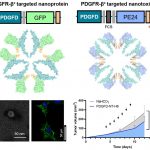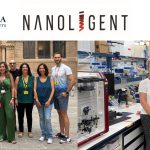

 |
This Unit is located in the Hospital de la Santa Creu i Sant Pau, in Barcelona, and is coordinated by Dr. Ramón Mangues, PI of the Oncogenesis and Antitumor Drug Group. The main objective of the Nanotoxicology Unit is to assess the toxicity of new drugs, nanoparticles or nanotechnology-based biomaterials in in vitro and in vivo systems, with the goal of optimizing lead compounds and identifying those with the highest probability of success in the preclinical programme due to their greater safety and tolerability or reduced toxicity. The Unit has rooms equipped for cell culture, for cryopreservation of samples and cell lines, and for sample preparation and analysis and animal facilities for in vivo experimentation.
Equipment: The Unit has access to flow cytometers, sorters, confocal microscope and other equipment of the Platforms available at the Hospital Research Institute as well as housing facilities for small rodents (rat and mouse).
FOR THOSE SERVICES IDENTIFIED AS OUTSTANDING, AT LEAST 20% OF THEIR CAPACITY IS OPEN UNDER COMPETITIVE ACCESS. SEE ANNEX 1 OF ACCESS PROTOCOL FOR DETAILS ON % OF OPENNESS FOR EACH SERVICE
| Title | Fundin: Organism | Call: Funding source | Role | ||
|---|---|---|---|---|---|
| ICTS-2017-10-CIBER-2 |  | Acquisition and istallation of infrastrucuture to complemntUnis 3-Synthesis of Peptides, U18-Nanotoxicology y U20-In vivoExperiment | Ministerio de Economía, Industria y Competitividad (MINECO) | Programa Operativo FEDER de Crecimiento Inteligente 2014-2020 (POCInt) | Coordinator |
| SAF2017-90810-REDI |  | Strategic Promotion and coordinated management of Nanbiosis: Pronanbiosis II | Agencia Estatal de Investigación (AEI) | Acciones de dinamización «REDES DE EXCELENCIA» -ICTS 2017 | Coordinator |
| Ref | Title | Funding Organism | Unit Role |
|---|---|---|---|
| PI15/00378 | Intelligent nanoconjugates for targeted therapy of metastatic colorectal cancer (CRC) | Instituto de Salud Carlos III | Working package |
| PIE15/00028 | Targeted nanocongugates for the selective elimination of stem cells in disseminated cancer | Instituto de Salud Carlos III | Working package |
| PI15/00272 | Design of intelligent nanoconjugates for the treatment of metastatic colorectal cancer. | Instituto de Salud Carlos III | Participant |
| CP15/00163 | Maria Virtudes Céspedes Navarro Contracts Miguel Servet Type I | Instituto de Salud Carlos III | Working package |
| CD14/00055 | Contract SARA BORRELL | Instituto de Salud Carlos III | Working package |
| Marato 416/C/2030TV32013-132031 | Genotoxic nanoparticles targeting colorectal cancer stem cells | Marato TV3 | Participant |
15 Apr

Researchers from NANBIOSIS co-author a new study showcasing an innovative approach to protein-based biomaterials for drug delivery and regenerative medicine. Barcelona, april 2025. A recent publication in the International Journal of Biological Macromolecules highlights the cutting-edge work of scientists from Unit 1 (Protein Production Platform, PPP) and Unit 18 (Nanotoxicology Unit) of NANBIOSIS, under the leadership of Prof. Antonio Villaverde and Prof. Ramón Mangues, respectively. The study, entitled “Surpassing protein specificity in biomimetics of bacterial amyloids” (DOI: 10.1016/j.ijbiomac.2025.139635), explores the development of artificial protein granules with promising applications in biomedicine. A Novel Approach to Biomimetic Materials The research introduces a[...]
31 Mar

Breakthrough nanotherapy targets MSS colorectal cancer, inducing pyroptosis and immune activation. NANBIOSIS Units 1 and Unit 18 played a key role. Barcelona, march 2024. For this World Colorectal Cancer Day, researchers from Dr. Mangues’ group (CB06/01/1031), in which NANBIOSIS Unit 18 is integrated, have published just last month a groundbreaking study on a novel targeted nanotherapy for colorectal cancer. Conducted in collaboration with three CIBER research groups across two thematic areas (BBN and ER), this research highlights the potential of CXCR4-targeted nanotoxic therapy to combat microsatellite stable (MSS) colorectal cancer, a subtype known for its resistance to immune checkpoint inhibitors[...]
04 Apr

Breakthrough colorectal cancer treatment unveiled by NANBIOSIS Units promises enhanced precision & efficacy in targeted cancer therapies. March 2024, UAB/Institut de Recerca Sant Pau/CIBER-BBN (Barcelona) As we leave World Colorectal Cancer Day 2024 behind, marked on March 31st, there have been significant highlights in cancer treatment, a field in which targeted therapies are playing a crucial role. In this context, researchers from the Nanobiotechnology team, at the Institut de Biotecnologia i de Biomedicina from Universitat Autònoma de Barcelona, led by Prof. Antonio Villaverde, in collaboration with the Oncogenesis and Antitumor Drugs team led by Prof. Ramón Mangues at Institut d[...]
05 Mar

This novel immunization platform, recently published in ACS, triggers potent antivirus response, promising efficient and cost-effective vaccination. March 2024, UAB/Vall d’Hebron Research Institute/CIBER-BBN (Barcelona) The battle against infectious diseases demands innovative solutions. The world is especially aware of this fact after facing threats such as the SARS-CoV-2 pandemic. In a very recent publication in ACS Materials Letters, researchers from the Universitat Autònoma de Barcelona (UAB) and Hospital de Sant Pau, both within the CIBER-BBN, have achieved a significant milestone in vaccine development. Their study, conducted in partnership with international teams as well as NANBIOSIS, has introduced a novel immunization approac[...]
06 Feb

DNA nanoparticles to selectively target tumor tissues through precise control of the synergies between transported drugs. February 2024, IQAC-CSIC/CIBER-BBN, Barcelona. The team led by Drs. Carme Fàbrega and Ramón Eritja, in close collaboration with 3 units of the NANBIOSIS ICTS, has developed a new strategy to improve the efficacy and reduce the toxicity of anticancer drugs. They have chemically linked several cytotoxic drugs, currently used in the treatment of various types of tumors, to DNA nanostructures. These structures selectively target cancerous tissues through folate receptors. This tactic allows precise control of drug concentration and exploits their combined effect. The results[...]
20 Dec

With the participation of two units of NANBIOSIS ICTS and the expertise of the scientists managing these units The study, fruit of the collaboration between the Nanotechnology group of the Institute of Biotechnology and Biomedicine (IBB-UAB), led by Prof. Antonio Villaverde, and the Oncogenesis and Antitumor Drugs group of the Sant Pau Research Institute, led by Dr. Ramon Mangues, both members of CIBER-BBN, has made significant progress by identifying the natural ligand PDGFD as an effective tool to target protein nanoparticles to tumor-associated fibroblasts that overexpress the PDGFR-β receptor. Given the relevance of the discovery, this technology has been intellectually[...]
08 Nov

2023 CIBER-BBN Annual meeting has taken place at Santemar Hotel, in Santander during November 6-7. This year the format of our annual conferences has been changed towards a collective event scheme between the CIBER-BBN and CIBEREHD thematic areas. On Monday 6 the scientific sessions werecommon for EHD and BBN, with appealing contents for the mixed audience. On Tuesday 7 EHD and BBN sessions will specific for each area in separate rooms (with common coffee break). Posters of both areas were on display in the exhibit hall throughout the entirety of the Annual Meeting. Moreover, at the “Posters & beers” session (Monday[...]
28 Sep

September 27th 2022 – Nanoligent SL, a Spanish biotech company specialized in the development of cancer treatments based on unique protein conjugates, today announces the completion of a Seed financing round of total € 2.8 M. The final closing of the Seed round consists of € 1 M investment by i&i Biotech Fund I (i&i Bio), an early-stage Life Science fund with teams in Luxemburg and Prague which is backed by the European Investment Fund. i&i Bio joined previous Nanoligent investors, Italian Angels for Growth, the largest network of business angels in Italy, and AVANTECA Partners, a Swiss privately held[...]